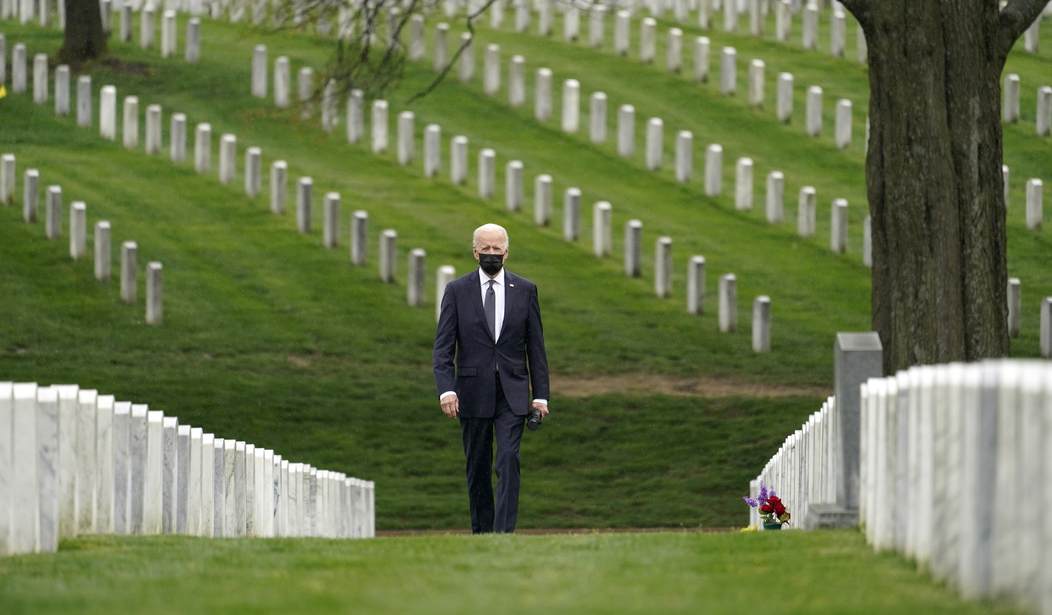On this Memorial Day, we remember our country’s war dead. We reflect not only on the why of the great world wars of the last century, but on the equal bravery of the hard men and women who died fighting the jihadist menace around the globe. A trusted and dispassionate military is key to the survival of our country, and freedom can tolerate no other.
In Part One of this piece, I argue that American division can now be categorized as a strategic weakness. I also argue that there are three perilous trends that exist as a result of our division, but also serve as worrying accelerants. As we take a look at the second and third of these trends, let’s do so with both the solemnity the day requires and a reminder that the role of the military as a trusted institution is not a guarantee, it instead requires constant maintenance.
In fact, the second of these perilous and division-sped trends is our current cycle of degrading civil-military relations. While not yet a deep fissure, relations digress with a worrying speed. Yes, there have been missteps by the military, and shameful politicization of the institution such as the back-and-forth with Tucker Carlson. Yet on balance, the degradation of relations is not the fault of the uniformed class. It’s ours. As instances of unrest have grown, we – the American people – have forced the military into an unenviable policing role it hasn’t been called upon to perform in a generation. The more that occurs, the greater the divide will be, and the harder for people to trust the assessment of military leaders as emergencies arise. This will matter much more in an era where our debates aren’t over troop levels in counterinsurgency efforts that barely make the news, but consequential great power moves, high-risk military maneuvers, and an eventual reintroduction of the draft.
Recommended
The third and final example of how our division weakens us is in our diminished social and patriotic capital. That seems a tautology: a weakness of being divided is that we don’t feel as close. A simple concept it is, but still worth posing in a basic question: what happens to the sustaining bonds of political union after a year of lockdowns, economic volatility, civil unrest, and a brutal election season? What happens when we experience all of that absent the cultural landmarks that might have provided us bursts of affection along the way? Those brotherly bonds erode with every smile not shared underneath a mask; every missed chat at the coffee shop furthers that erosion.
The reason this diminished political capital matters is that – as abroad – here at home we’re past the minor crises. There are no easy choices left. $30 trillion in debt shrinks the possibility of comfortable change and increases the chances of rude correction. We now live in an era of political assassination, be it via rifle or pipe bomb, federal workers barred from the lunch counter of private businesses due to their political affiliation, and the temporary overrun of our federal Capitol building. A month or so ago, we all expected that if a jury in faraway Minneapolis didn’t conclude what others already had, buildings would be set on fire. Of the when and how we come to terms with our political differences there is little question of additional political violence along the way. The question unanswered is do we emerge united?
America is on a path of political denormalization, and it is not alarmist to recognize the maintenance of our federal union as-is faces no guarantee. The agitation and unrest we face are the output of our division, not the cause. No solution will be found in traditional pleas for comity or brotherhood. We won’t arrive at a better place by the elite-fool’s errand of shaping speech by social media censorship, nor by Beltway-borne messages reassuring us we’re really not so far apart.
We need to stare down the fundamentals of our divide – a core disagreement about the nature of the American regime for which there are a few remaining big conciliatory mechanisms such as constitutional amendment or convention. Exercise these mechanisms as necessary and hope that we can remain united and with our founding principles intact.

























Join the conversation as a VIP Member